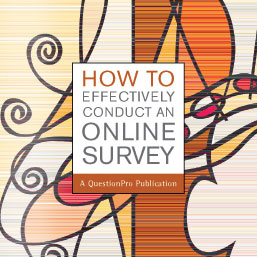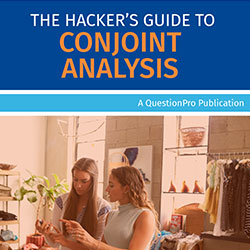Sending out Customer Satisfaction Surveys can Double Your Business Sales
We all are well aware of a simple fact in marketing - Acquiring new customers is 10 times more difficult and expensive than retaining existing ones. This is one of the fundamental driving forces behind the wide-spread adoption and interest in CRM and related customer retention strategies.
In a research study by Rice University Professor Dr. Paul Dholakia and Dr. Vicki Morwitz, published in Harvard Business Review, the experiment concluded that the simple fact of asking customers how a company was performing by itself proved to be a great customer retention strategy. In the research study, conducted over the course of a year, one set of customers were sent out a satisfaction and opinion survey and the other set was not surveyed. After a year, twice the number of people continued and renewed their loyalty towards the company in the group that took the survey.
The research study offered a couple of interesting rationales based on consumer psychology, behind this phenomenon:
1. Satisfaction Surveys reinforce the customers desire to be coddled and reinforce positive feelings.
This stems from part of the human psychology that wants to "appreciate" a product or service they already like. The survey feedback loop is merely a tool to express this. The survey is a vehicle to "interact" with the company and reinforces the customer's commitment to the company.
2. Surveys may increase awareness of auxiliary products and services.
Surveys can be considered vehicles of communication - both inbound as well as outbound. Most people consider surveys as a data collection exercise. When conducting consumer surveys, they can also serve as a medium for disseminating information. It is important to note a few caveats here.
a. In most countries including the US, "selling under the guise of research" is illegal.
b. However, we all know that information is disseminated while collecting information.
c. Additional disclaimers may be added to the survey to make users aware of this fact. Ex: "We will be collection your opinion and informing you about products and services that have come online in the last year..."
3. Induced Judgments
The very process of asking people their opinion can induce them to form an opinion on something they otherwise would not have considered. This is a very subtle and powerful argument. This argument is analogous to the "Product Placement" strategy currently used for marketing products in mass-media like movies and television shows. One example is the extensive and exclusive use of the "mini-Cooper" in the blockbuster movie "Italian Job." This strategy is questionable and should be used with great caution to avoid be critically rebuked.
Surveys should be considered as a critical tool in the customer relationship dialog. The best thing about surveys is its ability to carry "bi-directional" information. The research conducted by Paul Dholakia and Vicki Morwitz shows that surveys not only get you the information that is critical for your business, but also enhances and builds upon the established relationship you have with your customers.
Recent advances in technology have made it incredibly easy to conduct real-time surveys and opinion polls. Online tools make it easy to frame questions and answers, and create surveys on the Web. Distributing surveys via email, website links or even integration with online CRM tools like Salesforce.com have made online surveying a quick-win solution.
Survey Software Easy to use and accessible for everyone. Design, send and analyze online surveys.
Research Suite A suite of enterprise-grade research tools for market research professionals.
Customer Experience Experiences change the world. Deliver the best with our CX management software.
Employee Experience Create the best employee experience and act on real-time data from end to end.







